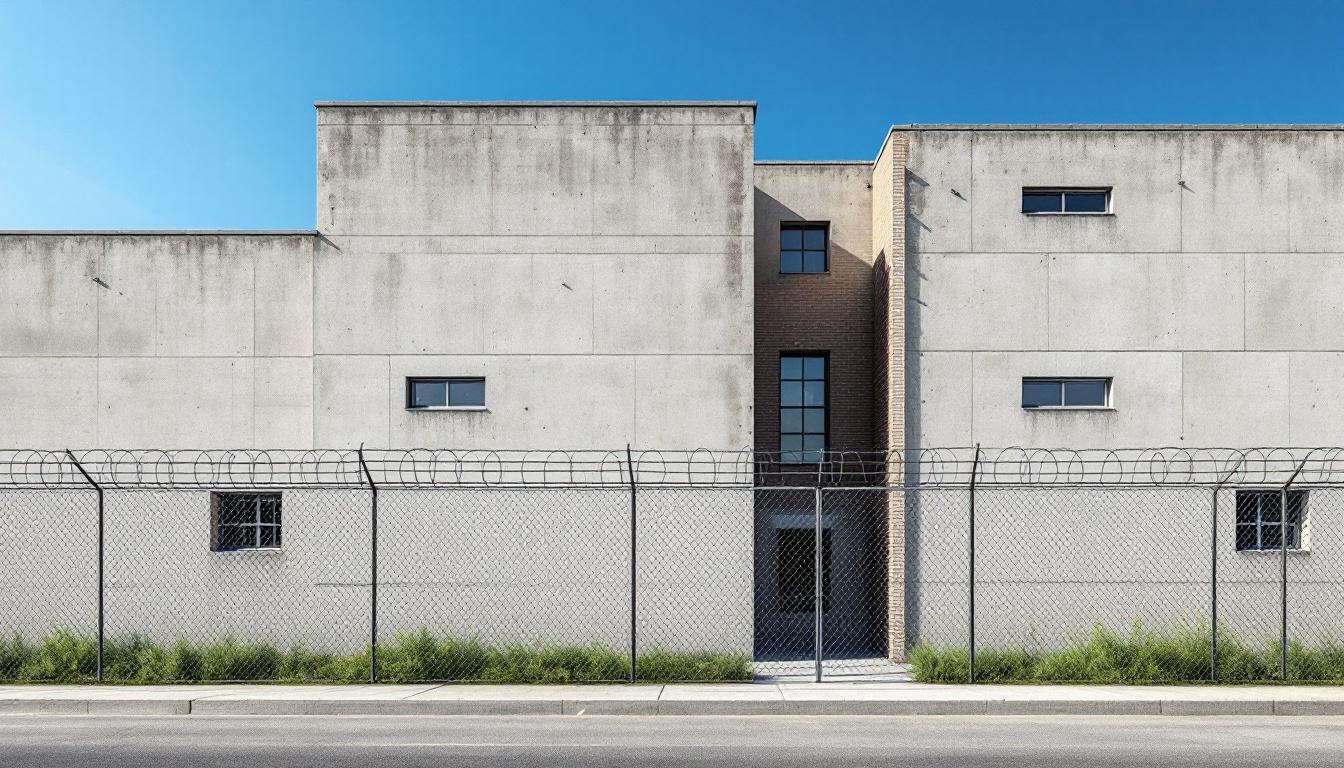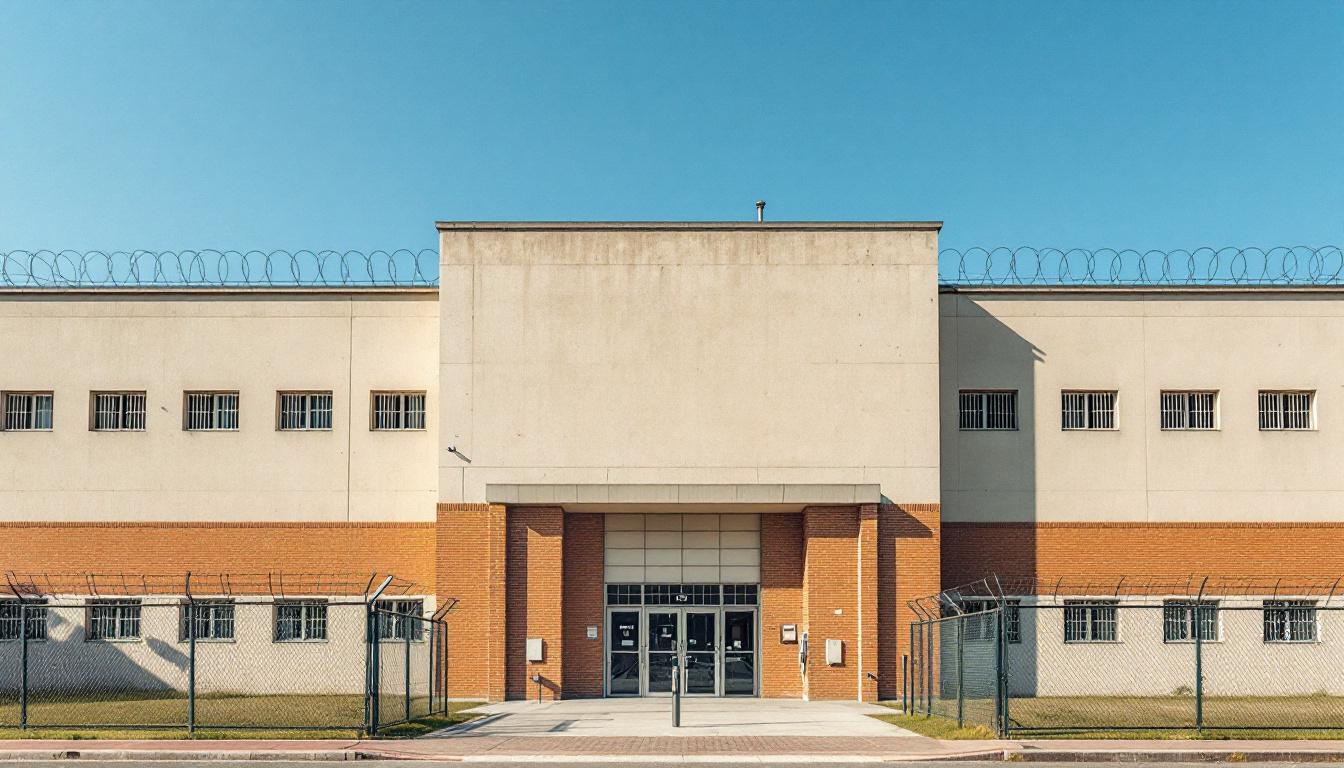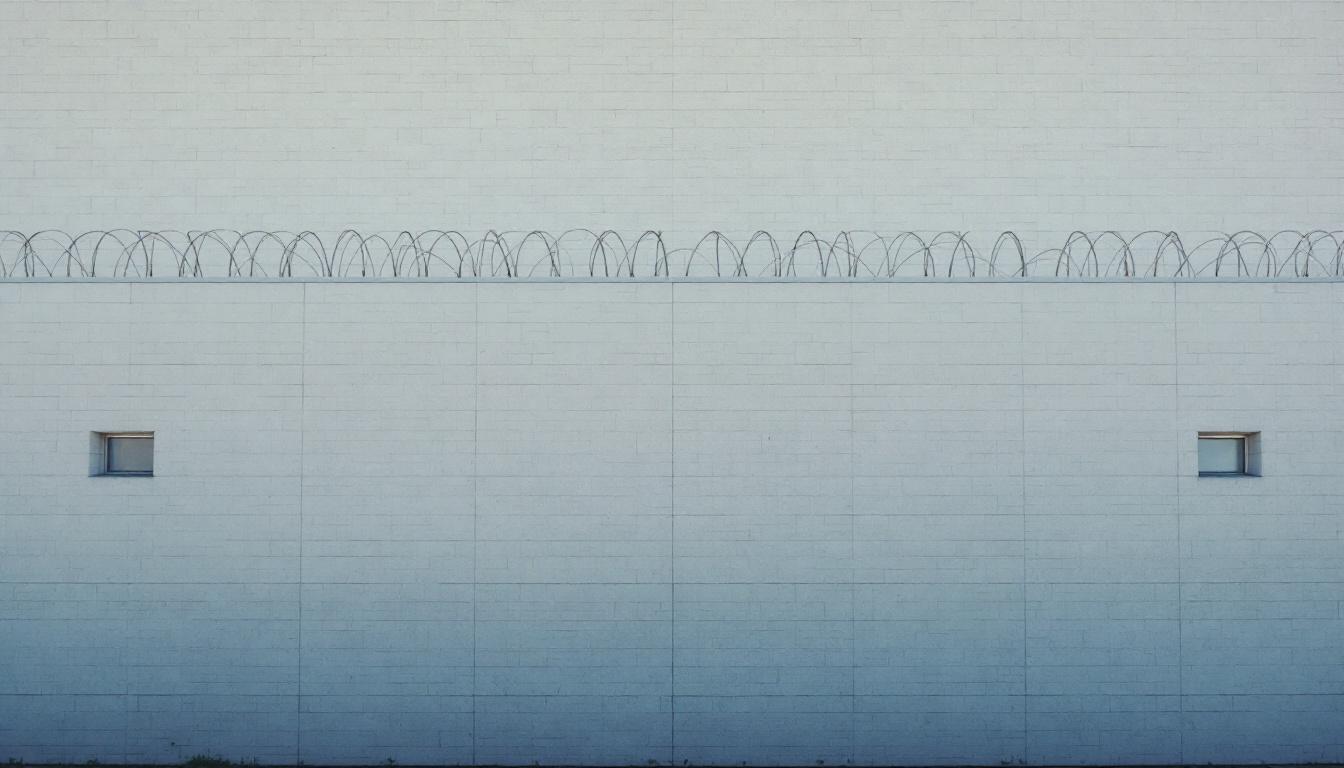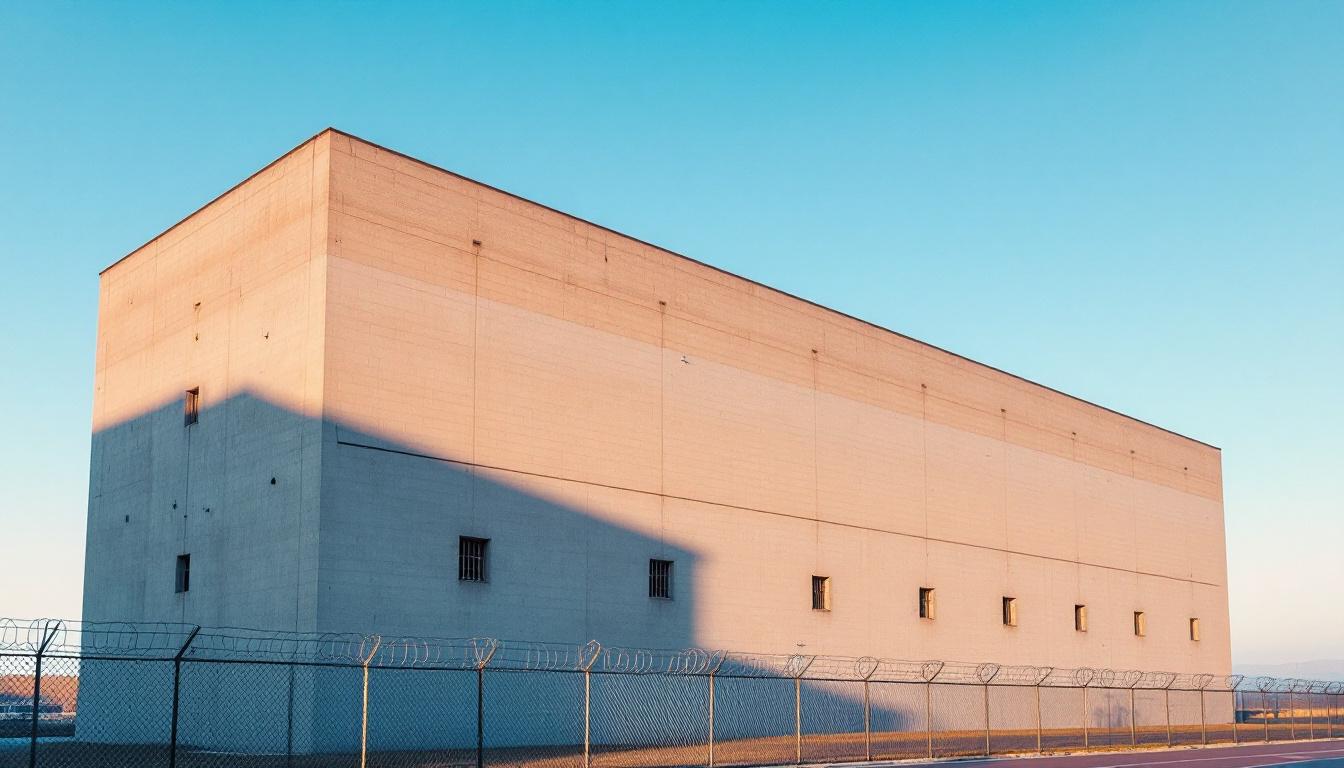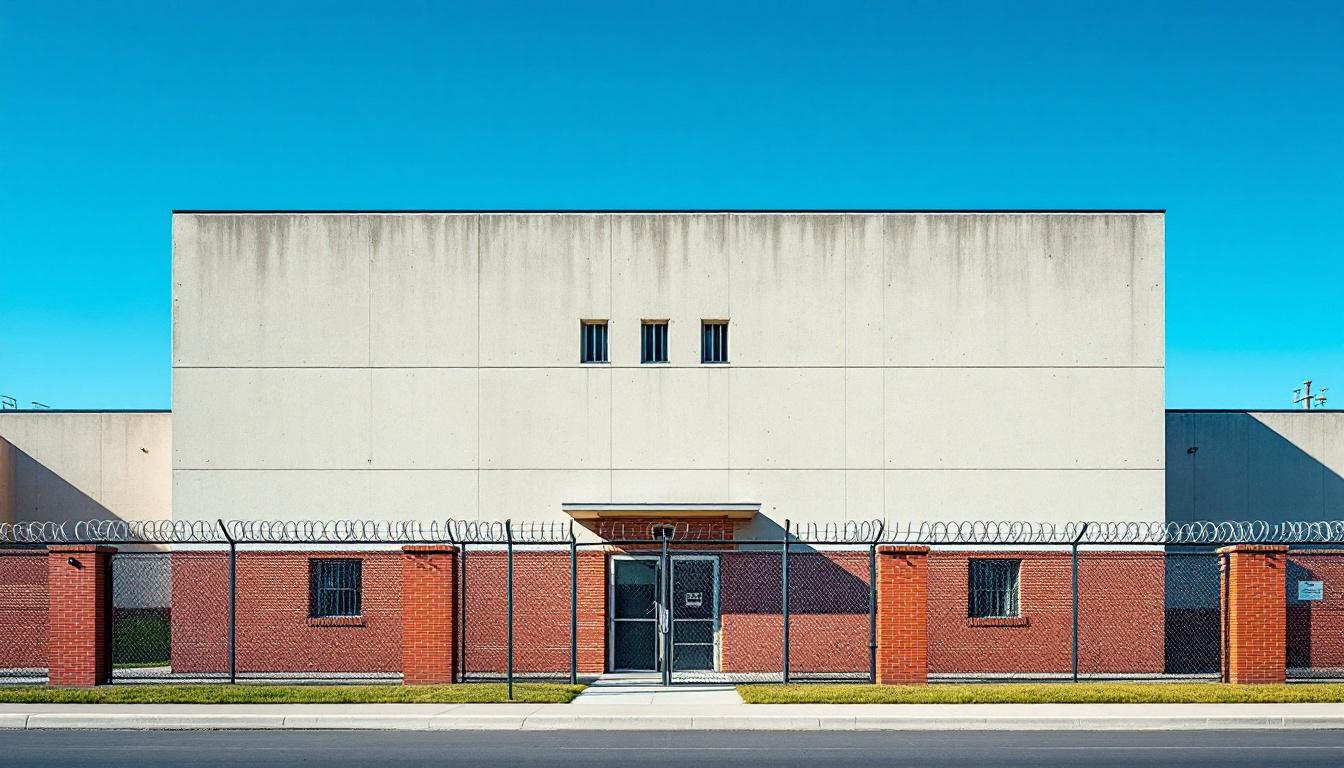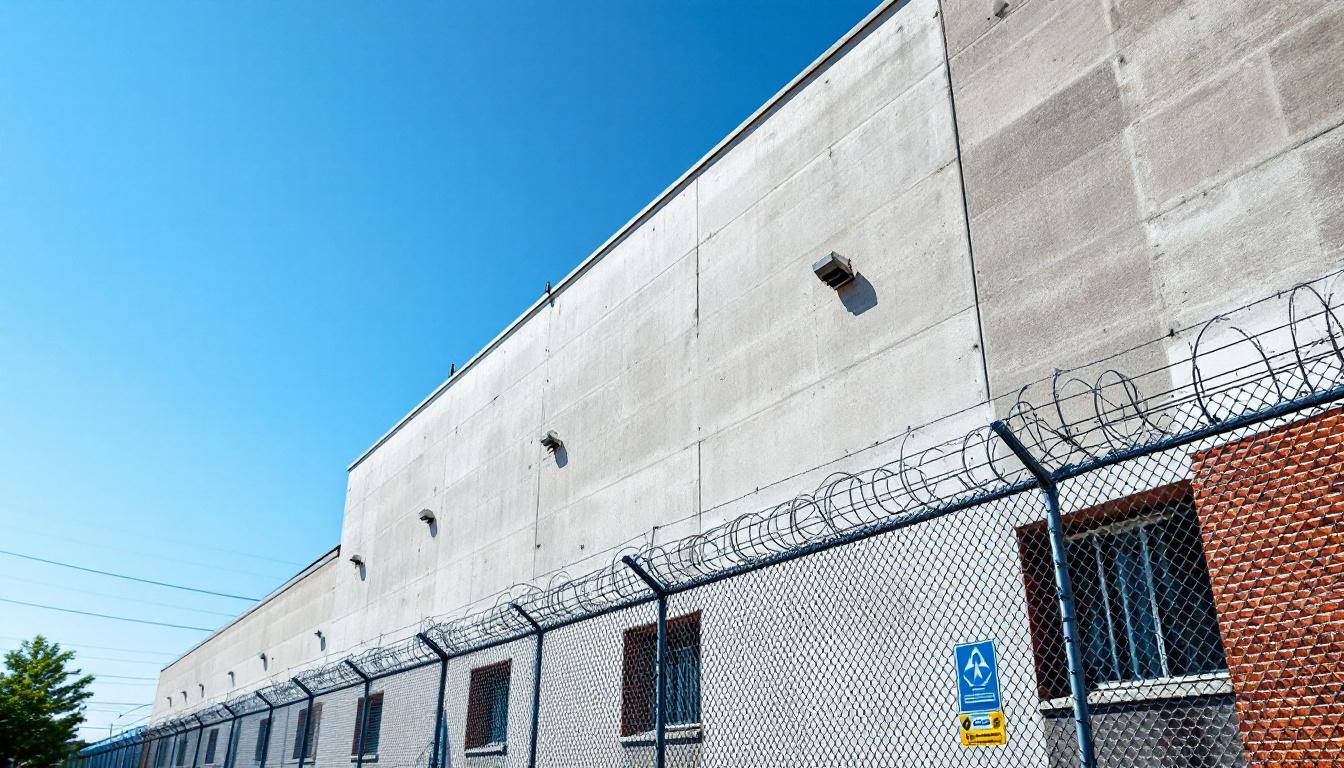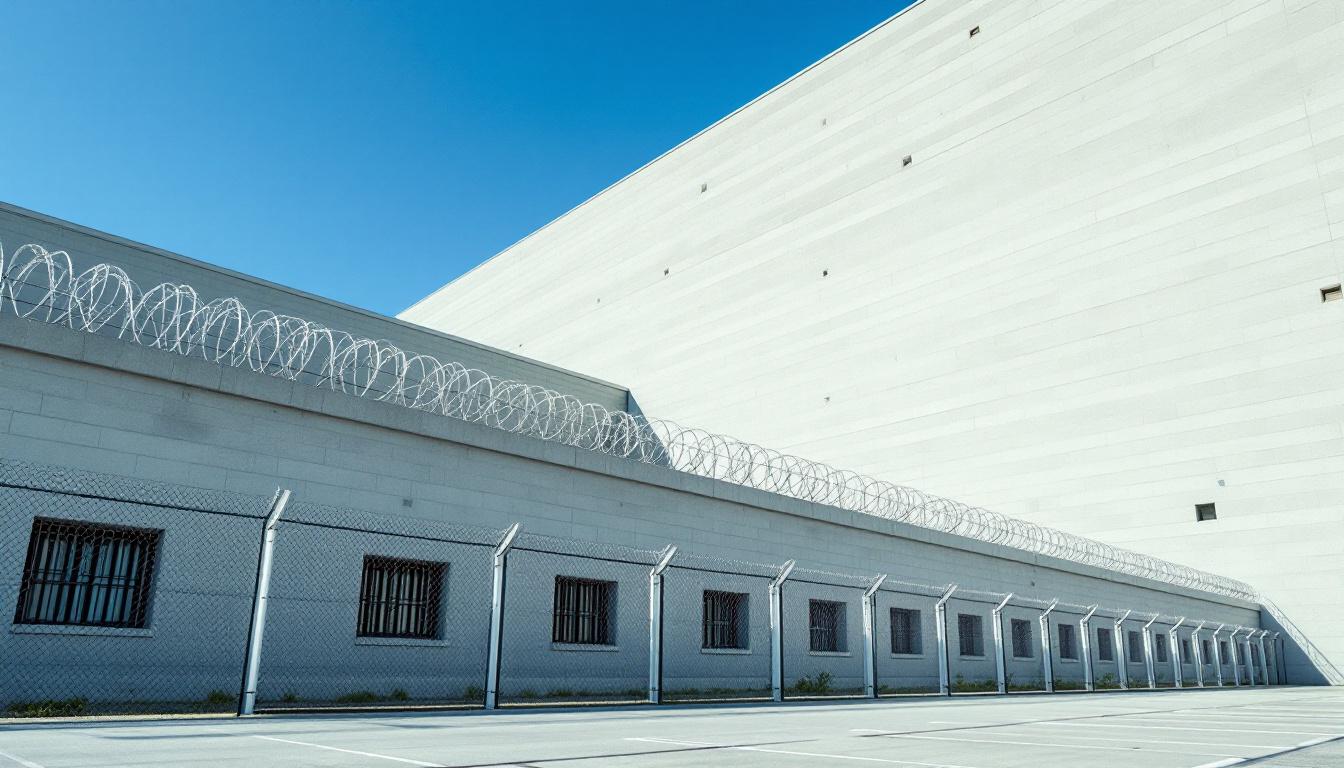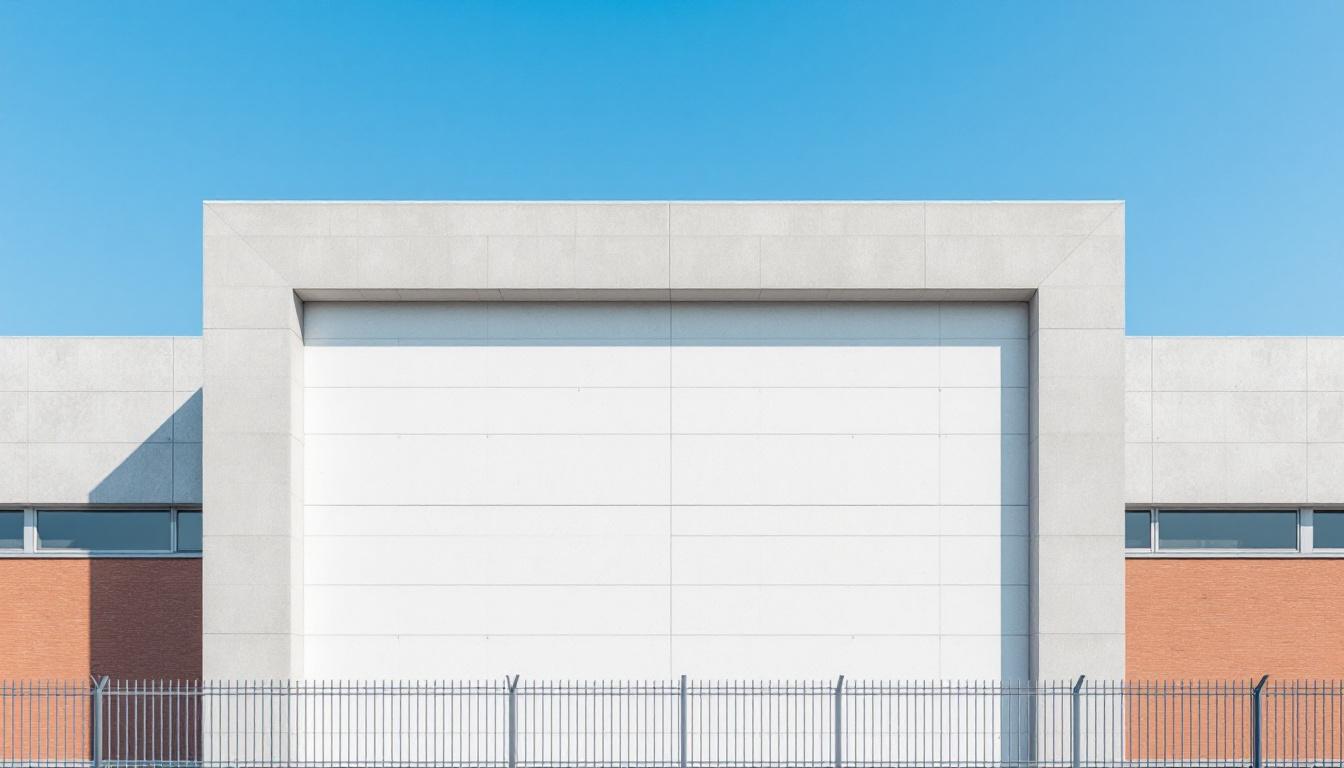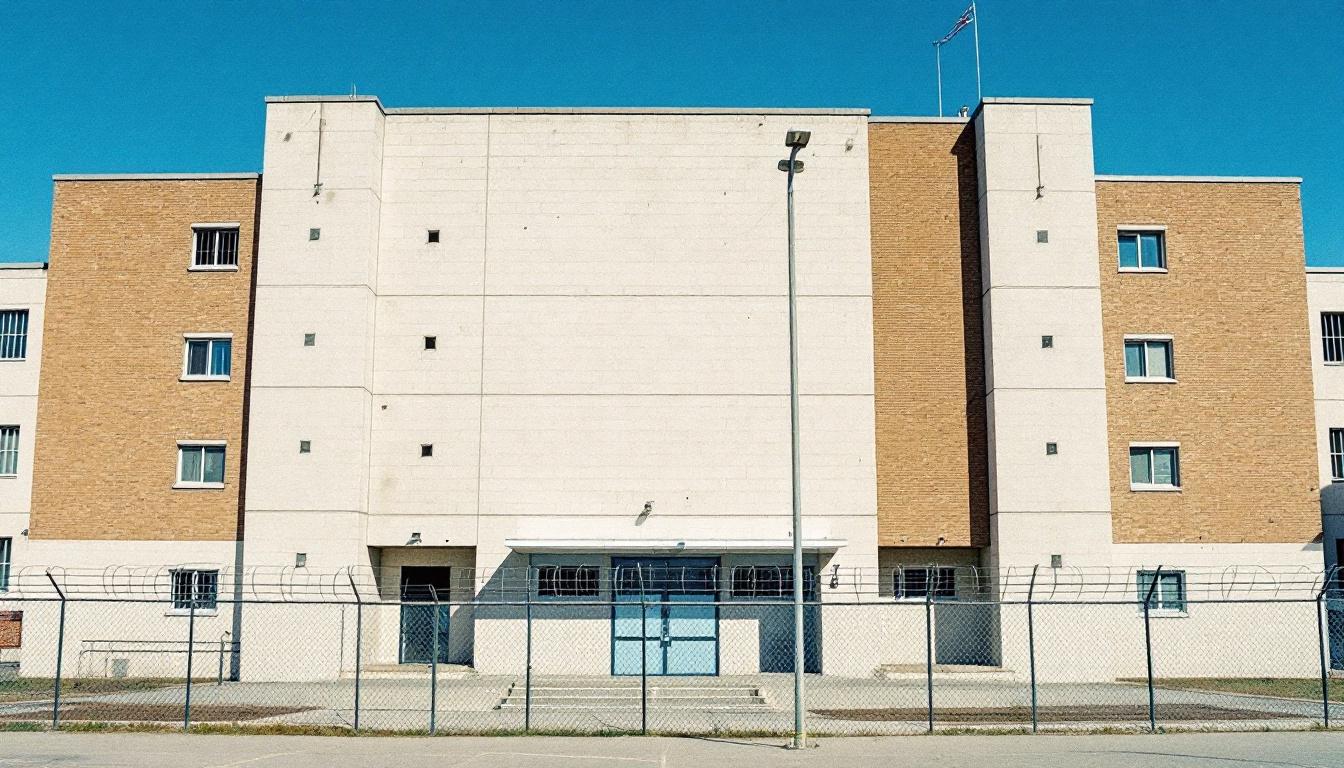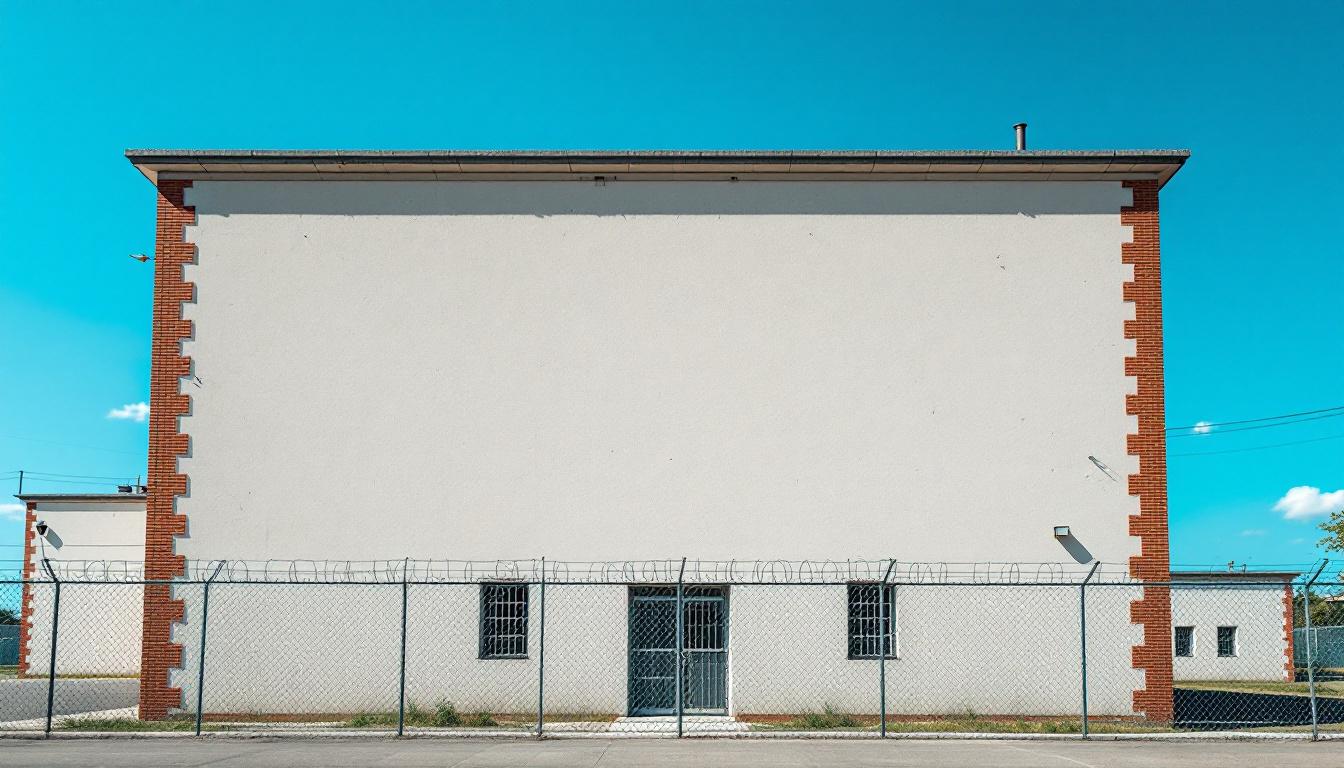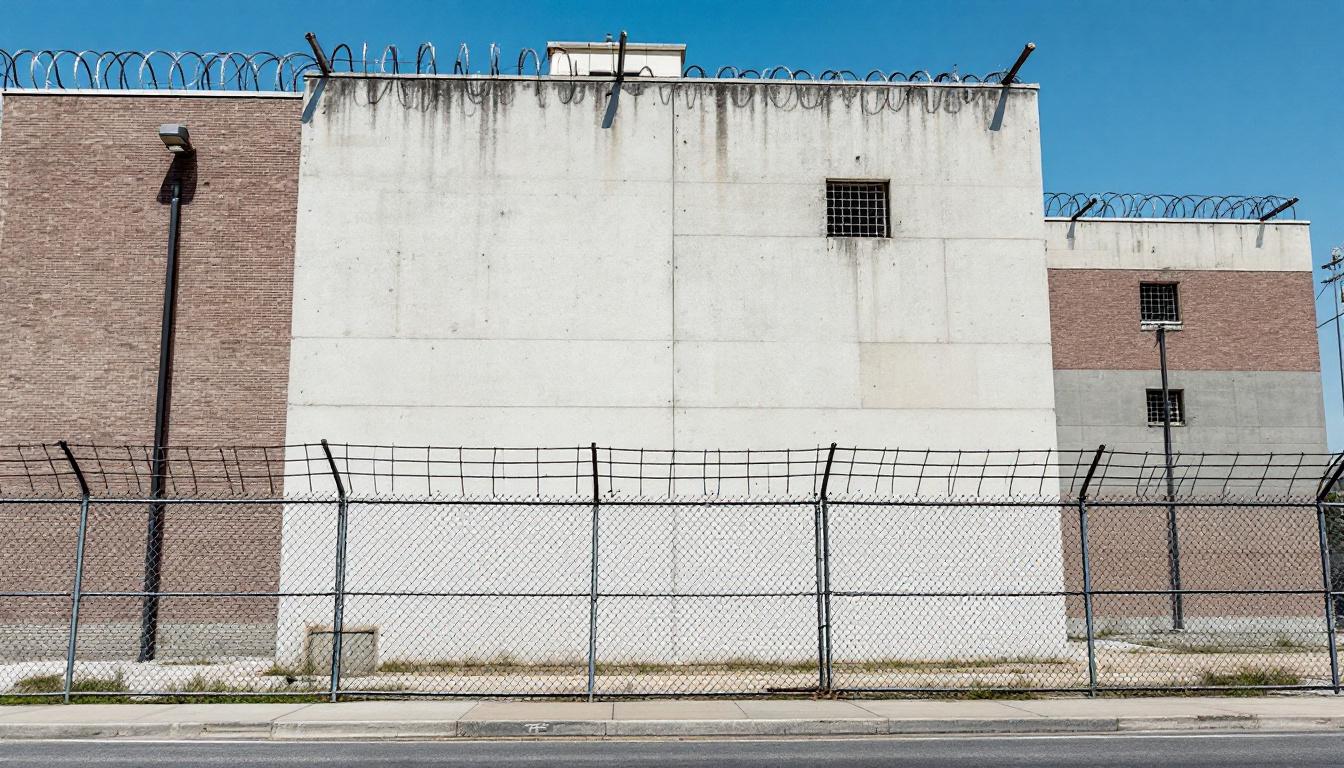
Quick Navigation
How to contact an inmate at Blount County Correctional
This comprehensive guide will walk you through how to connect with an inmate at Blount County Correctional. Follow the steps below to find an inmate and send letters and photos:
- Search for the inmate using our search tool below
- Create your account or log in to Penmate
- Write your message (up to 6,000 characters)
- Send instantly - inmates receive printed copies daily
Find an Inmate
Search for an inmate to start communicating today
Tip: You can search by first name, last name, or inmate ID number
To contact a person at Blount County Correctional start by searching for the person on the official facility website. Perform a search by following these steps:
- Step 1: Enter their first name and last name into the search form and click "Search"
- Step 2: Locate their inmate record
- Step 3: Write down their Inmate ID and any housing information provided
Important! Be sure to enter the person's full name. Nicknames should not be used.
How to Send Messages to Inmates

You can use your phone or computer to send emails, letters, and photos to an inmate. Messages are sent electronically to inmate tablets or kiosks at the facility. If you would like to send a message, start by searching for an inmate at Blount County Correctional.
Sending Photos and Postcards

A great way to send love and support to a loved one at Blount County Correctional is to send photos and postcards. It only takes a few minutes to send photos from your phone and it makes a huge difference. You can also mail postcards with words of support and inspiration, or design your own postcard for special moments like birthdays and holidays.
Important! Be sure not to send any explicit photos or they may not be approved by the facility. You can also use a photo printing app like Penmate to make sure your photos are printed at the correct size (4x6 or 3x5) and are mailed according to the rules and regulations of Blount County Correctional.
Frequently asked questions about Blount County Correctional
-
How long does it take to deliver a message?
If you're sending an email message your letter is usually delivered within 24-48 hours. For messages sent via mail you should expect delivery within 3-7 days. All messages will need be approved by Blount County Correctional.
-
How much does it cost to send a message to Blount County Correctional?
You can send a message free using your phone or mail a message via USPS for the price of a $0.60 stamp and envelope. You can also purchase credits or e-stamps from services starting at $1.99.
-
What services can I use to contact an inmate at Blount County Correctional?
Penmate
You can use Penmate to send letters and photos to an inmate from your phone. It's an easy way to stay in touch during your loved one's incarceration. Use the inmate locator to find an inmate's location and contact information, then you can send messages within a few minutes.
Securus messaging
Securus may be another option for communicating with an inmate at Blount County Correctional. You can create a friends and family account and purchase credits to send messages. All messages will be reviewed and must be approved by the facility.
JPay
Some county jails and state prisons may support sending messages with JPay. You must register an account with the system, find your loved one, and purchase stamps to send messages. For some locations you can also attach photos.
Smart Jail Mail
You may also check if Smart Jail Mail is available at Blount County Correctional. Smart Jail Mail is operated by Smart Communications and has contracted with some state and county jails. After purchasing credits, your messages and photos are sent to the facility, printed out, and then handed out to your loved one.
-
What is the mailing address of Blount County Correctional?
Mailing address:
Blount County Correctional
225 Industrial Park Rd
Oneonta, AL 35121
Phone: (205) 625-4133Business hours:
- Monday: 8:00 AM – 8:15 PM
- Tuesday: 8:00 AM – 8:15 PM
- Wednesday: 8:00 AM – 8:15 PM
- Thursday: 8:00 AM – 8:15 PM
- Friday: 8:00 AM – 8:15 PM
- Saturday: Closed
- Sunday: Closed
-
What are the visiting hours at Blount County Correctional?
Visiting hours at Blount County Correctional vary by housing unit and security level. Generally, visits are scheduled on weekends and holidays, with some facilities offering weekday visits. Contact the facility directly at (205) 625-4133 or check their website for the current visiting schedule. Visits typically last 30-60 minutes and must be scheduled in advance.
-
What items are prohibited when sending mail to Blount County Correctional?
Prohibited items typically include: cash, personal checks, stamps, stickers, glitter, glue, tape, staples, paperclips, polaroid photos, musical or blank greeting cards, hardcover books, magazines with staples, and any items containing metal or electronics. Only send letters on plain white paper with blue or black ink. Photos must be printed on regular photo paper (no Polaroids). Always check with Blount County Correctional for their specific mail policies.
-
How do I send money to an inmate at Blount County Correctional?
You can send money to an inmate at Blount County Correctional through several methods: 1) Online using JPay, Access Corrections, or the facility's approved vendor, 2) Money orders mailed directly to the facility with the inmate's name and ID number, 3) Kiosks located in the facility lobby, or 4) Over the phone using a credit or debit card. Fees vary by method, typically ranging from $2.95 to $11.95 per transaction.
-
Can I schedule a video visit with an inmate at Blount County Correctional?
Many facilities now offer video visitation as an alternative to in-person visits. At Blount County Correctional, video visits may be available through services like Penmate, Securus Video Connect, GTL, or ICSolutions. Video visits typically cost $10-20 for 20-30 minutes and must be scheduled in advance. You'll need a computer or smartphone with a camera and reliable internet connection. Contact the facility for their specific video visitation policies and approved vendors.
-
What identification do I need to visit an inmate at Blount County Correctional?
All visitors must present valid government-issued photo identification such as a driver's license, state ID, passport, or military ID. Minors must be accompanied by a parent or legal guardian who can provide the minor's birth certificate. Some facilities require visitors to be on the inmate's approved visitation list, which may require a background check. Contact Blount County Correctional for specific ID requirements and visitor approval procedures.
-
How can I find out an inmate's release date?
To find an inmate's release date at Blount County Correctional, you can: 1) Use the online inmate search tool if available, 2) Call the facility's records department, 3) Contact the inmate's case manager or counselor, or 4) Have the inmate provide this information during a call or visit. For privacy reasons, some facilities only release this information to immediate family members.
Facility Overview
Contact Information
Blount County Correctional225 Industrial Park Rd
Oneonta, AL 35121
Phone: (205) 625-4133
Official Website

About Blount County Correctional
County jails serve as critical components within Tennessee's broader correctional framework, and the Blount County Jail, AL facility operating in Oneonta, TN exemplifies this essential role through its commitment to both secure custody and meaningful rehabilitation outcomes. As part of the state's network of local detention centers, this TN correctional facility typically focuses on preparing individuals for successful reintegration into their communities while maintaining public safety standards that protect both residents and the population services depend upon for stability.
The facility's location in Oneonta positions it to serve families and community members throughout the region, often providing programs that may include educational opportunities, substance abuse counseling, and vocational training designed to address underlying factors that contribute to recidivism. These rehabilitation-focused initiatives generally work alongside traditional security measures to create an environment where individuals can develop skills and perspectives that support positive life changes. The county jail typically maintains connections with local organizations and service providers, helping to bridge the gap between incarceration and community reentry.
Within Tennessee's correctional system, facilities like Blount County Jail often serve as vital links between arrest and either release or transfer to state-level institutions, making their role in early intervention and assessment particularly significant. The facility may offer family visitation programs, legal consultation access, and mental health services that recognize the complex needs of those in custody while supporting the broader goal of reducing future criminal behavior and strengthening community ties.
Programs & Services
Through comprehensive programming initiatives, the population at Blount County Jail receives structured support designed to address both immediate needs and long-term reintegration goals. The facility's approach emphasizes building practical skills while fostering personal development through evidence-based interventions. These programs typically focus on addressing underlying issues that may have contributed to incarceration while preparing individuals for successful community reentry.
Educational services form a cornerstone of the facility's programming efforts, offering the population opportunities to advance their academic credentials and develop essential literacy skills. Also available are vocational programs that may supply hands-on training in automotive repair, providing participants with marketable skills that often translate directly to employment opportunities upon release. These educational and vocational initiatives typically emphasize both theoretical knowledge and practical application, helping participants build confidence alongside technical competencies.
Support services extend beyond academic and vocational training to address the broader needs of the population. Faith-based programs often provide spiritual guidance and community connection for those seeking such support during their incarceration. Also offered are specialized programs focusing on time management skills, which may supply participants with tools for organizing their daily routines and setting realistic goals. These supportive interventions typically work together to create a comprehensive framework that addresses multiple aspects of personal development, helping prepare individuals for meaningful reintegration with their families and communities.
Daily Life & Visitation
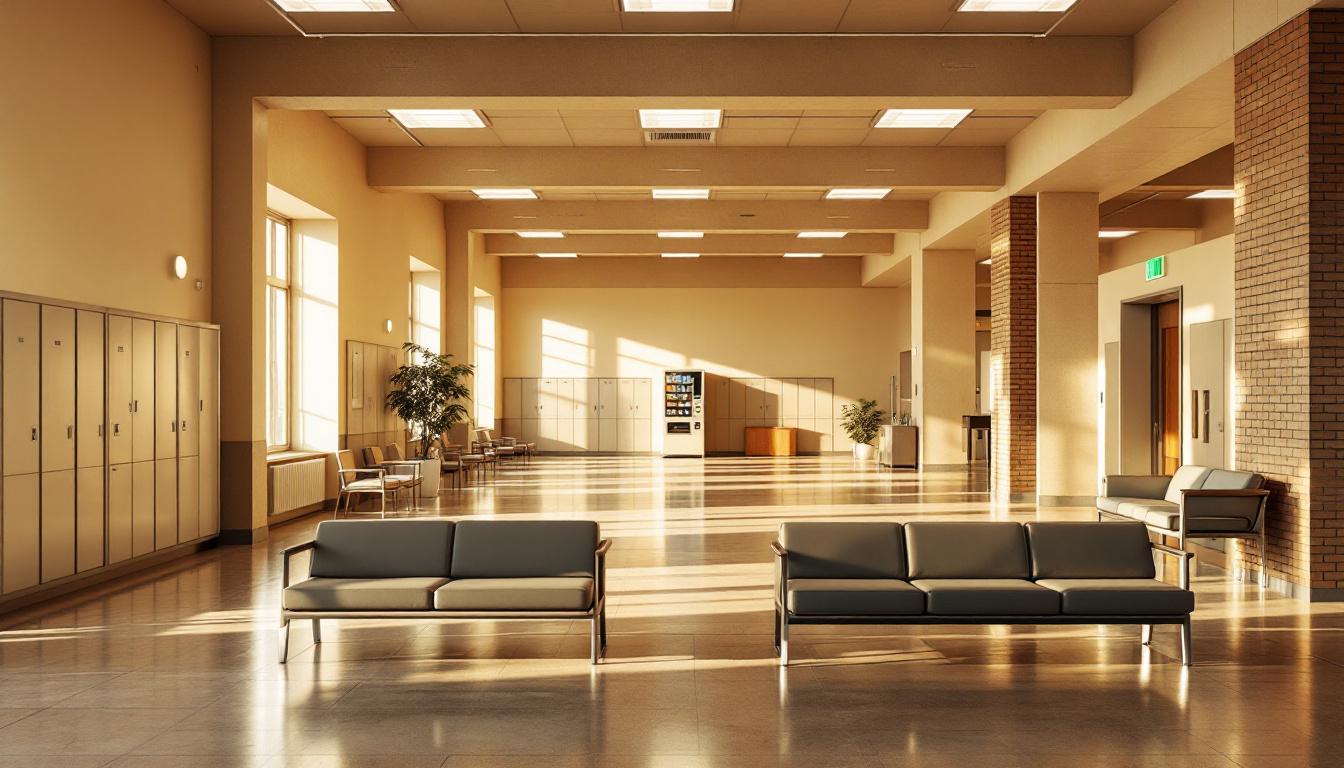
Organizational systems and structured routines form the backbone of how the population navigates their time at this correctional facility. Today's schedule typically begins with early morning counts and meal service, followed by work assignments or programming activities that supply consistent structure throughout the day. The facility generally operates on a predictable routine that helps maintain order while providing opportunities for productive engagement.
Housing units are typically organized to accommodate different classification levels, with the population assigned to dormitory-style or cell-based accommodations based on various factors. Living spaces usually include basic amenities such as beds, storage areas, and shared bathroom facilities. Meals are generally served at designated times in common dining areas, though some units may receive meal service within their housing areas. Also, the facility typically maintains a commissary system where the population can purchase approved personal items and food products using funds from their accounts.
Recreation opportunities often include access to outdoor areas for exercise and indoor spaces for various activities, though availability may vary based on security requirements and facility operations. However, structured programming schedules typically supply educational classes, vocational training, or other developmental activities during designated periods. Visitation policies generally allow family members and approved visitors to maintain contact through scheduled visits, while phone and mail systems provide additional communication options. Work assignments within the facility may include kitchen duties, maintenance tasks, or other operational support roles that help the population contribute to daily facility functions while developing job skills.
Ready to Connect?
Start communicating with your loved one today
Search for an Inmate
